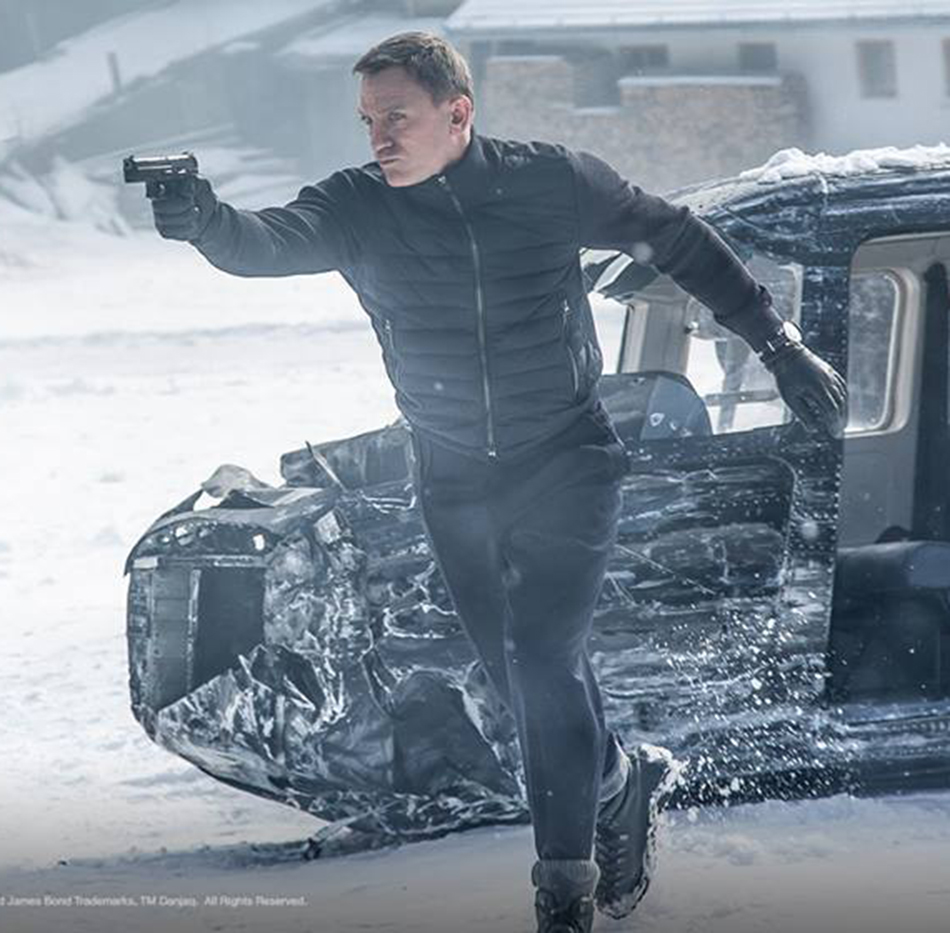Spectre, though enjoyable, relies on typical film tropes

Take aim · Daniel Craig returns as James Bond in Spectre, the latest in the popular film series. In this movie, Bond goes after the villain, played by actor Christoph Waltz, in a mission for a friend. – Photo courtesy of Sony Pictures
Some movies, no matter how formulaic they are, will never get old. Bond films are evidence of this, as proven by the franchise’s longstanding history and success in film. Some of the Bond films completely reinvent the standard of being incredible espionage thrillers, while others are less memorable but still enjoyable entries in the series. Spectre is a decent Bond movie, but is ultimately forgettable.
James Bond (Daniel Craig) is back for a personal mission while investigating something for an old friend of his. The more he investigates, however, the deeper he gets pulled into a world of shadows and danger, and those who are close to him are also roped into his world of impending doom. Bond has to find a way to stay alive yet again in the midst of non-stop action.
One of the overlooked things about this movie is its great pacing. The movie runs for two hours and 28 minutes, but it rarely feels like it’s dragging along. There is plenty of action to go around, and many of the set pieces are grandiose in nature. The dialogue comes just as fast as the action, but it’s not too difficult to follow. Some of the older Bond movies are very dialogue heavy — what is actually five minutes can feel a lot longer. This movie does a good job of keeping the action going for the entirety of the movie, and while there are some dialogue-heavy scenes, the conversations are relatively easy to follow.
This is also a downside, as there aren’t a lot of quotable or memorable lines or conversations in the movie. In fact, the only memorable ones usually come across as corny or out of character. There are some lines from Bond that feel out of character for the cold, brutal and calculating Bond that Craig is known for. They provide a couple of quick laughs to diffuse the tension but feel gimmicky and do not seem characteristic of Bond films in the long run.
For the most part, Craig does a fantastic job as Bond. Though in some of the scenes he might be pandering to the audience for a cheap laugh, there are other times when Craig delivers a line with just the right amount of sarcasm. This is reminiscent of Sean Connery’s portrayal of James Bond. Connery always had the right thing to say for every situation. This gives Craig’s portrayal of Bond a relatable aspect, as no one wants to see an emotionless and monolithic Bond. That being said, Craig’s Bond still brings the ruthlessness that many have fallen in love with, and his portrayal in this film doesn’t detract from the argument as to why some say he’s the best Bond to date.
Though Craig’s performance is strong, it isn’t enough to pick up the slack of the unfortunate lack of character development from nearly every character in the film. This film, like Skyfall, has a premise that is very personal to Bond, but the film hardly scratches the surface in terms of development of Bond. Léa Seydoux, who plays Dr. Madeleine Swann and the iconic “Bond girl” in the film, appears to be just along for the ride. In contrast to a lot of the other characters in the film, her development seems forced and way too fast. Seydoux’s character expansion will definitely leave some confused, as she seems like a completely different character by the end of the film—but not in a good way.
On the other hand, the new villain, played by Christoph Waltz, feels tragically underused. As seen in Skyfall, a great villain can make a Bond movie soar to a new level of greatness, but the antagonist in Spectre feels like he’s there solely to fulfill the requirement of the bad guy. There just simply isn’t enough character development for the villain, and it is by far the most disappointing aspect to the movie.
Spectre is a commendable Bond film that features plenty of action and Bond tropes that will satisfy any fan of the series. However, those who are looking for something spectacular and groundbreaking will be left with a feeling of dissatisfaction with this entry, as the poor character development and less-than-memorable dialogue make this film and a disappointing phantom of what it could have been.
